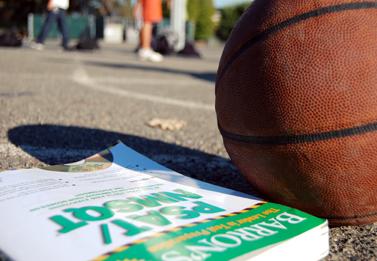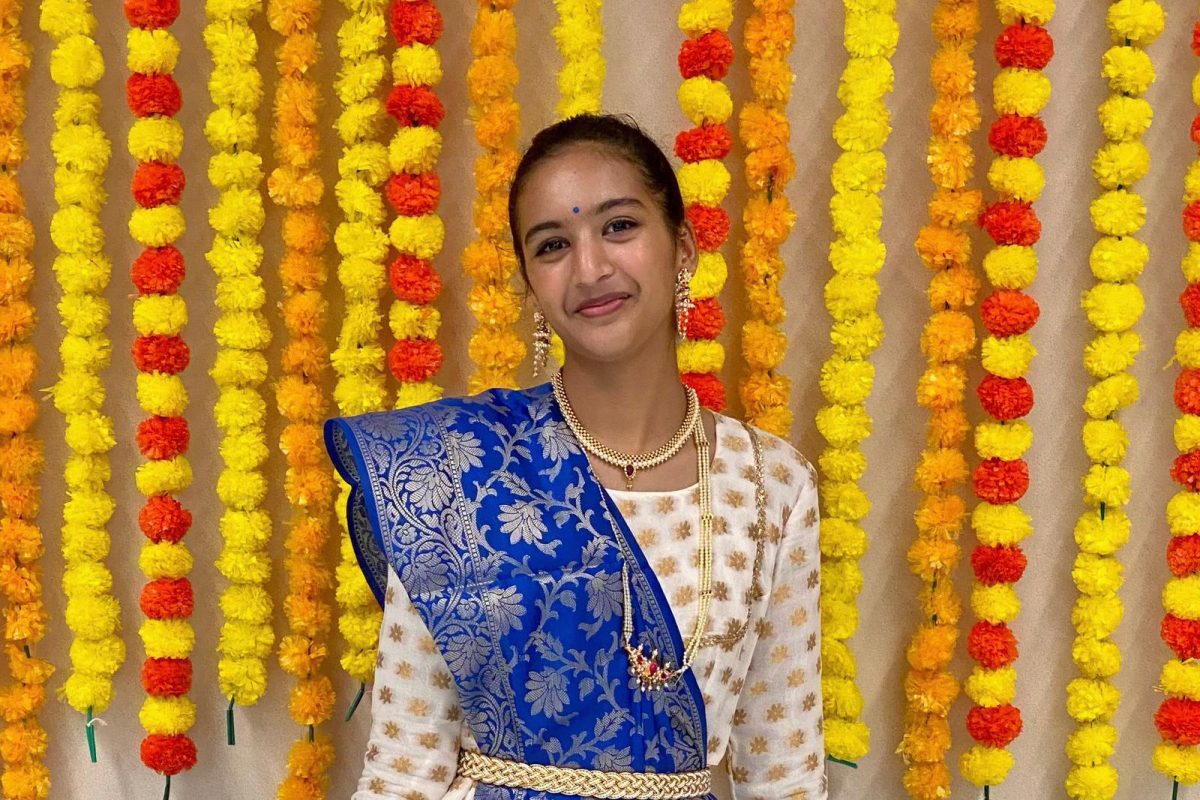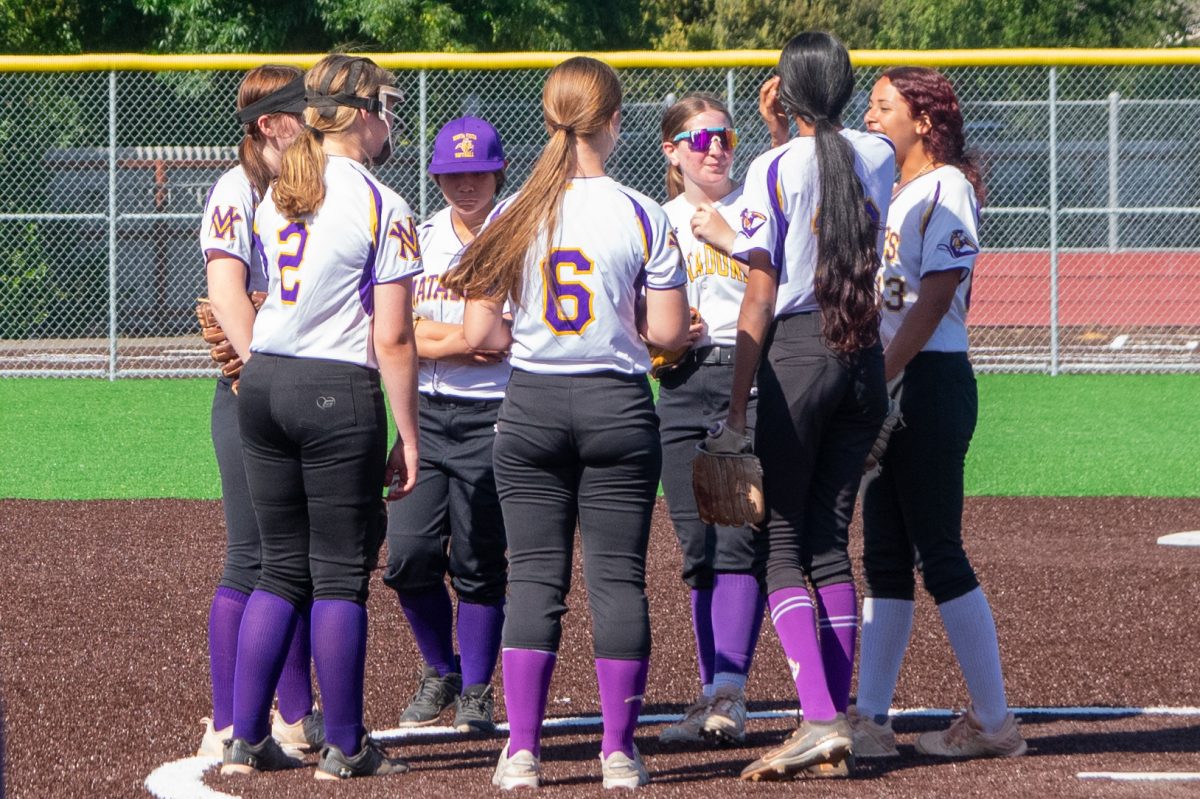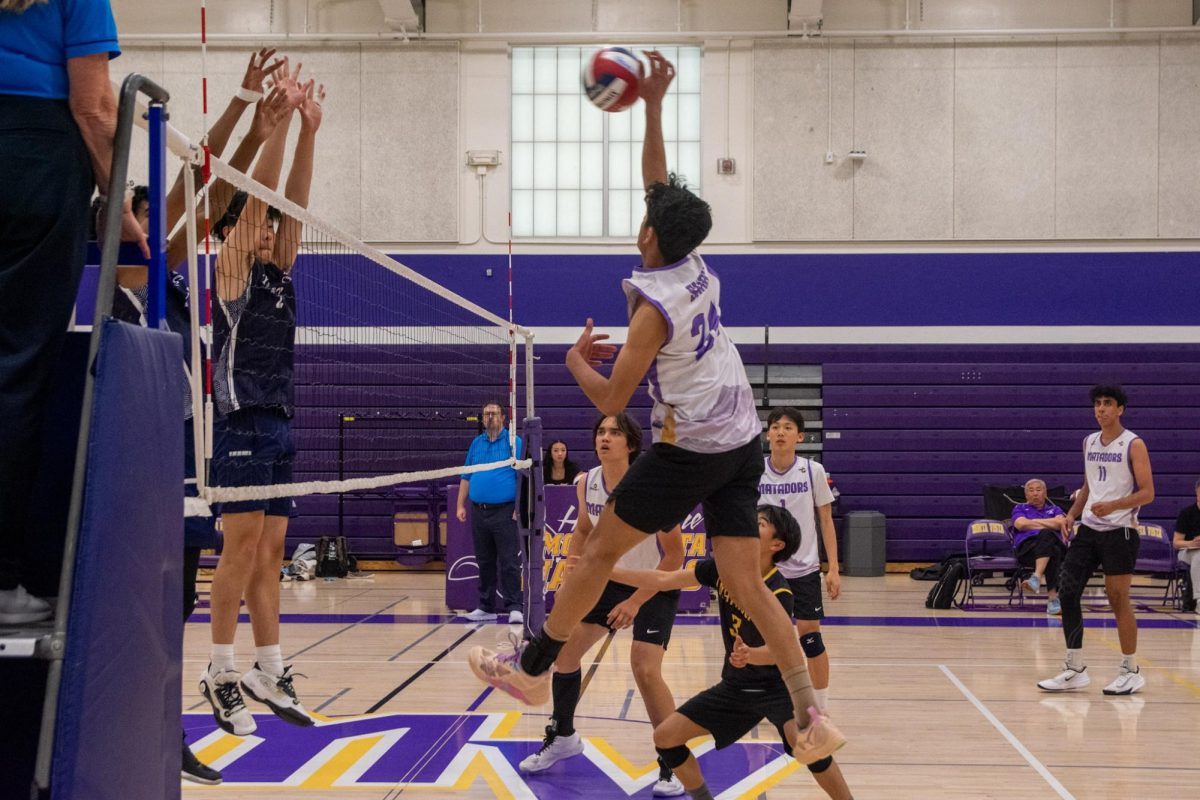 Parents pressure students to quit sports in light of academic load
Parents pressure students to quit sports in light of academic load
![]()
This project relates to content in the Oct. 20 El Estoque Print issue.
Varsity basketball tryouts were only one month away, and junior Andrew Hsu faced a dilemma. As a basketball player of nine years and a member of the varsity team since his sophomore year, Hsu had found his “true love” in basketball. But a single C on his first progress report threatened to take it all away.
It was not the district athletic standard of maintaining a 2.0 GPA and passing five classes that would force Hsu to opt out of this year’s season. Rather, the imminent danger stemmed from his mother’s concern over the fine balance between basketball and academics. Hsu found himself in a quandary of parental pressure—and in this case, he is not alone.
The balancing act is not uncommon at MVHS: students deal with pressure, high standards, and tight schedules as they juggle grades, SATs, extracurriculars, and sports. Some parents recognize the precarious situation, and that something has got to give. Herein lies the basis of a student vs. parent clash—to keep sports in the equation, or to re-prioritize with academics on top.
“The reason people do team sports is because they want to be part of something that’s bigger… or maybe just the love of the sport, but I mean, some combination of the two,” varsity field hockey player senior Srishti Agrawal said.
For Agrawal, conflict arose in September when her parents pressured her to focus on the upcoming October SAT. Entering her third and final season, she reduced her five-day field hockey schedule to only Thursday and Friday practices. Though Agrawal understands her parents’ perspective, if given a choice, she would have continued to practice full-time because she feels the benefits outweigh the costs.

“The fact that I get to work with a team consistently for three years and build those relationships, that’s what I’m really all about,” Agrawal said. “Taking that away from me is like taking away half [of] my life.”
Team building aside, Agrawal is not the only one who finds her participation in sports to be rewarding. She and varsity field hockey coach Denise Eachus agree that playing a sport is a healthy form of exercise and a valuable form of release.
Many athletes also report higher levels of efficiency during the sports season as a result of the sport itself. Granted, participation in a sport can be time consuming, but athletes like Hsu have found that working around limited amounts of homework time motivates one to be even more productive.
From a parental standpoint—in light of such benefits, why encourage students to quit?
Hsu and Agrawal acknowledge that their parents’ anti-sports sentiments are expressed with good intentions and with their futures in mind. Junior and senior year allude to standardized testing and GPA worries, and a sport can be just the thing to upset a student’s balance of priorities. As Agrawal reasons, in a parent’s mind, taking a sport out of the equation translates to less stress and more time to focus on academics.
“I have an ‘A’ GPA by normal standards, but not [MVHS] standards,” Agrawal said. “I think that [my parents are] feeling pressure because all of their friends have kids who have GPA’s like 3.8, 3.9, 4.0, and I’m not at that level.”
Varsity football player junior Yoyo Wang faced a similar situation at the end of his sophomore season when his parents set an ultimatum—a score of 2200 on the SAT, or no junior year football. Fortunately for Wang, who was barely breaking 2000, he was able to negotiate and secure permission to play out the season during the beginning of summer. Wang currently averages 14 hours of football per week, and has not yet skipped a practice.
“They’ve been trying to get me to quit football ever since sophomore year,” Wang said. “During football season, the relationship between us isn’t that good… tensions run high.”
For Hsu, the Nov. 1 tryouts are fast approaching. He remains uncertain as to whether he will be allowed to join the team this year or not, but has been practicing at preseason workouts and currently averages six hours per week. Though offered a car in return for giving up the season, he declined, maintaining that playing basketball is more important than just a “material thing.”
Whether sticking to their sports or not, consequences have ensued for all three athletes. Agrawal’s time off led to misunderstandings with teammates and substantial catch-up to get back on track. Cutting down on practice time was not a huge problem, but according to Agrawal, the “last minute scramble” proved ineffective.
“I don’t know if they realize at this point that there’s not very much room for change,” Agrawal said.
Nevertheless, Eachus, junior varsity field hockey coach Bonnie Belshe, and varsity football coach Jeff Mueller support the value in sports while simultaneously ranking academic success at the top of students’ priority lists. Agrawal and Wang consider their respective coaches as supportive no matter what.
“I would say that we’re very aware of the other time pressures that are going on,” Belshe said. “It’s all a balance, and we want to help support that balance rather than overloading on one side.”
{cc-by-nd}







